Pacific N.W. Technical Expedition: EPR + DRS Multi-Stakeholder Capacity Building
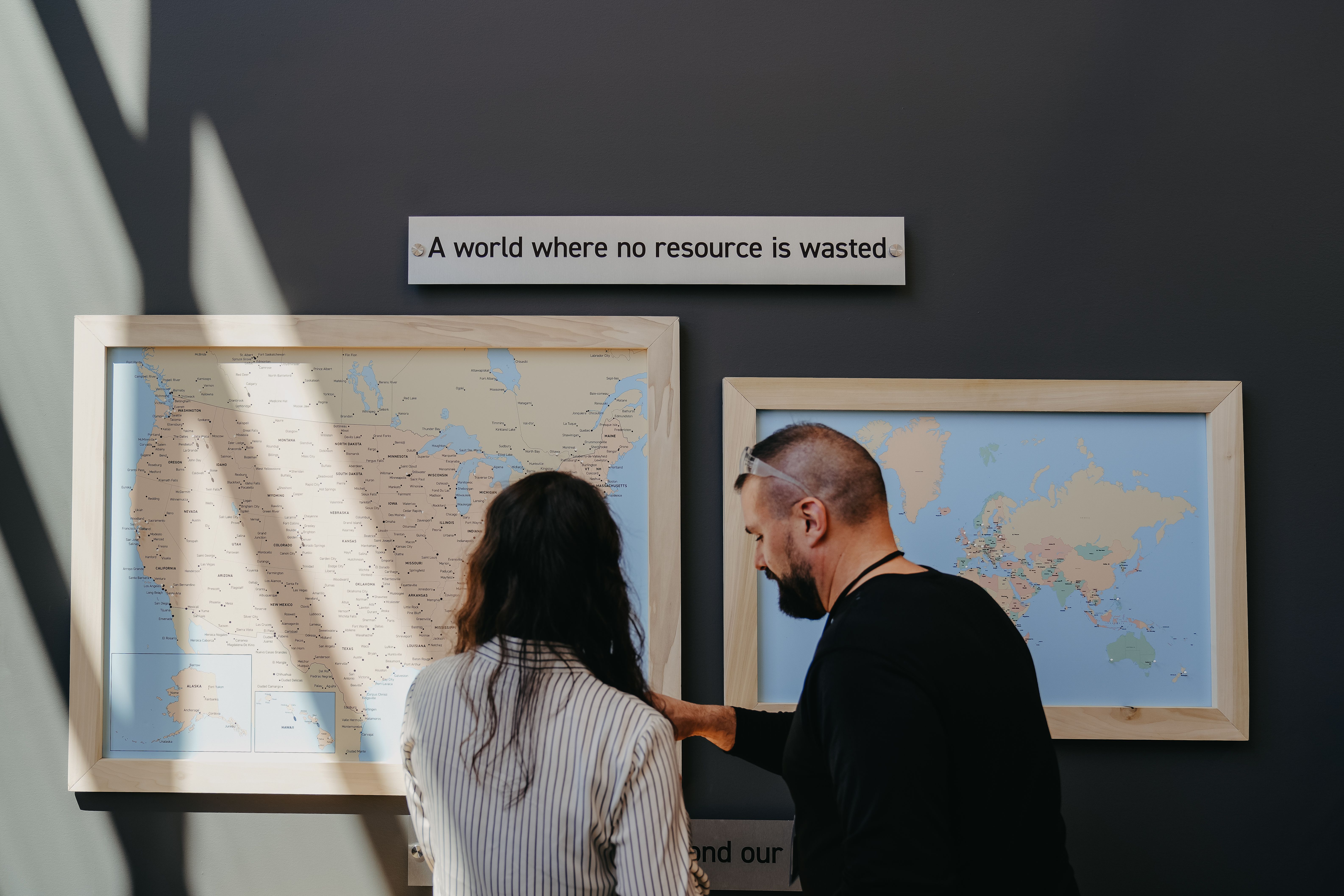
In May 2023, the Ocean Plastic Leadership Network (OPLN) hosted a three-day technical exhibition of key elements of British Columbia (B.C.) and Oregon’s deposit return systems (DRS) and extended producer responsibility (EPR) schemes for beverage containers. This three-day journey, from May 15th to 17th, brought together 30 participants representing major organizations across the beverage container value chain (from material producers, packaging converters, top beverage brands, retail, waste management and recyclers). The technical expedition aimed to foster collaboration, experiential learning, and advance policy development on National EPR & DRS among Fortune 500 sustainability leaders, policy makers, leading NGOs and government officials. This blog post will take you on a virtual tour of the expedition and highlight the key players and organizations that are actively working on circular solutions for beverage containers in the Pacific Northwest.
The Pacific N.W. Technical Expedition had three primary objectives:
- Experiential Learning to provide a platform for participants to witness the latest advancements in EPR and DRS systems on a global and North American scale.
- Collaboration and Policy Development to mobilize multi-stakeholder groups and encourage their collaboration in exploring paths to implementation and policy development.
- Circular Economy and Sustainability-Driven Innovation to promote the principles of a circular economy and foster sustainability-driven innovation as essential tools to combat plastic pollution.
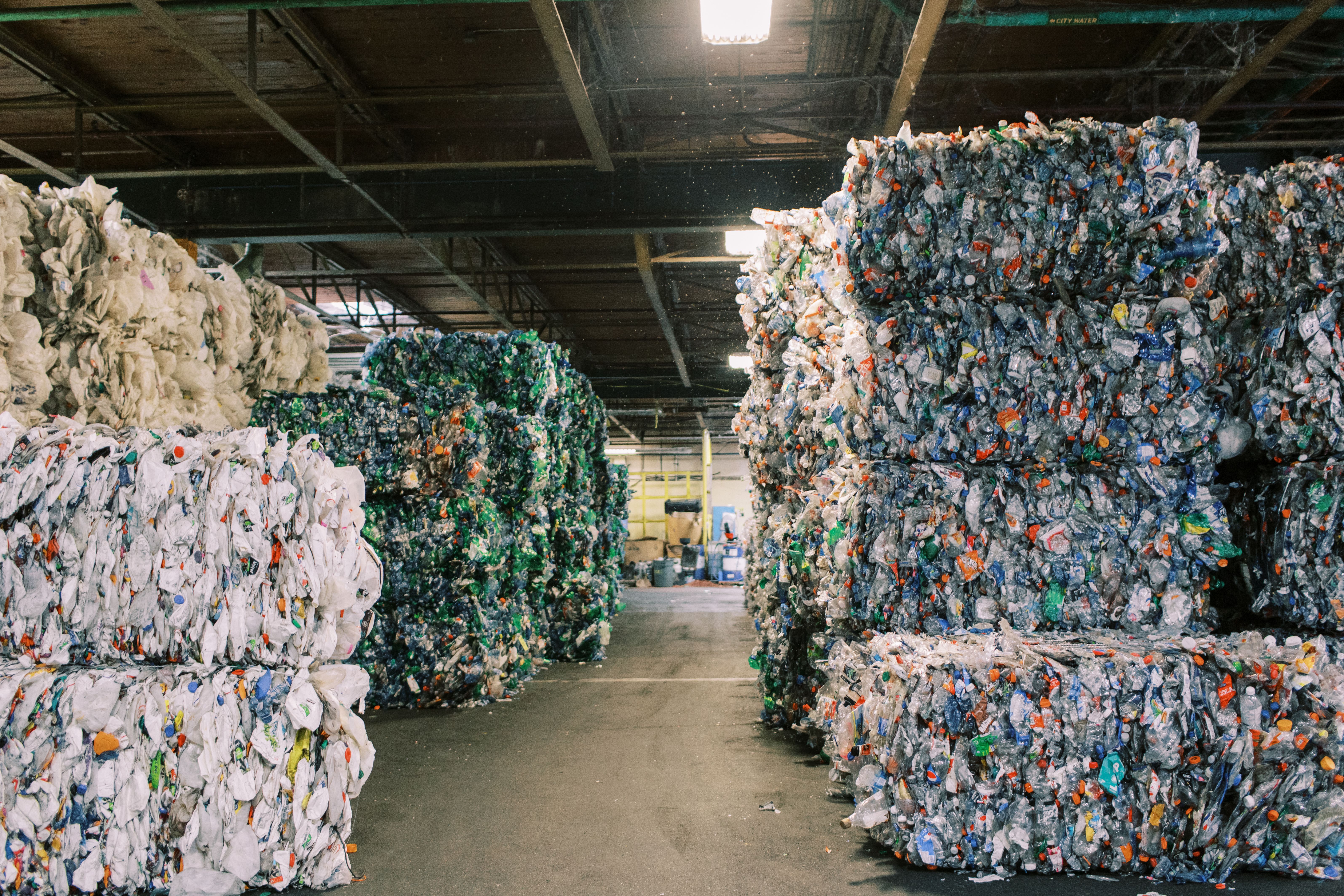
Why explore DRS and EPR? Container deposit return systems have been around for a long time, but they are still not available for the majority of American consumers. DRS works by adding a deposit on top of the price of a beverage, which is refunded to the consumer when they return the empty bottle or can for recycling. Think of it as renting the beverage container. Container deposit systems are sometimes referred to as bottle bills because they are typically established through legislation passed by state or national governments. EPR is a comparable scheme that is a little newer, at least in North American markets (Germany and much of Europe has been using EPR to fund recycling efforts since the ‘90s). The idea is the same, producers of packaging, brands that sell packaged products and sometimes even retailers and distributors come together to fund and sometimes to operate recovery and recycling schemes to lift the burden from city governments and citizens. Both schemes (DRS and EPR) have demonstrated impressive results in raising operational and capital budgets for recycling infrastructure, ensuring every community has access to recycling, keeping materials in circulation and out of the environment as litter, and providing low-barrier economic opportunities for marginalized groups, such as homeless communities.
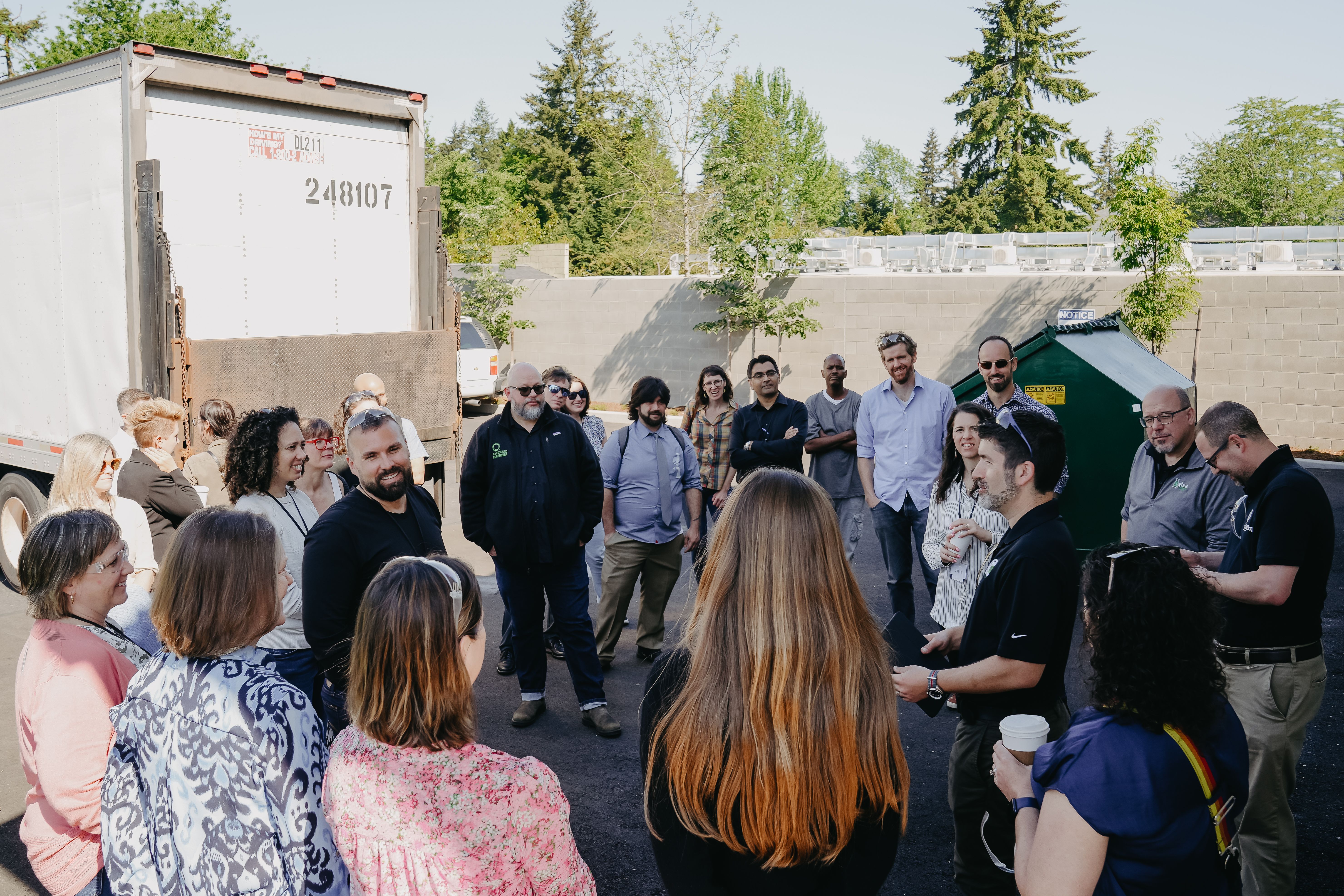
The Pacific N.W. Technical Expedition brought together key value chain actors to see first-hand how these systems work, the metrics, data and costs of performance and to engage with one another around the potential opportunities for DRS for beverage containers and EPR for other packaging materials to be universally available for all citizens across the United States, and to begin to think about the impact that could have on our oceans, littered city streets, greenhouse gas emissions, climate change, biodiversity loss and struggling community members that deserve a helping hand.
Join us for a virtual tour to share in the group’s learning and to celebrate the awesome work of the many organizations who hosted us.
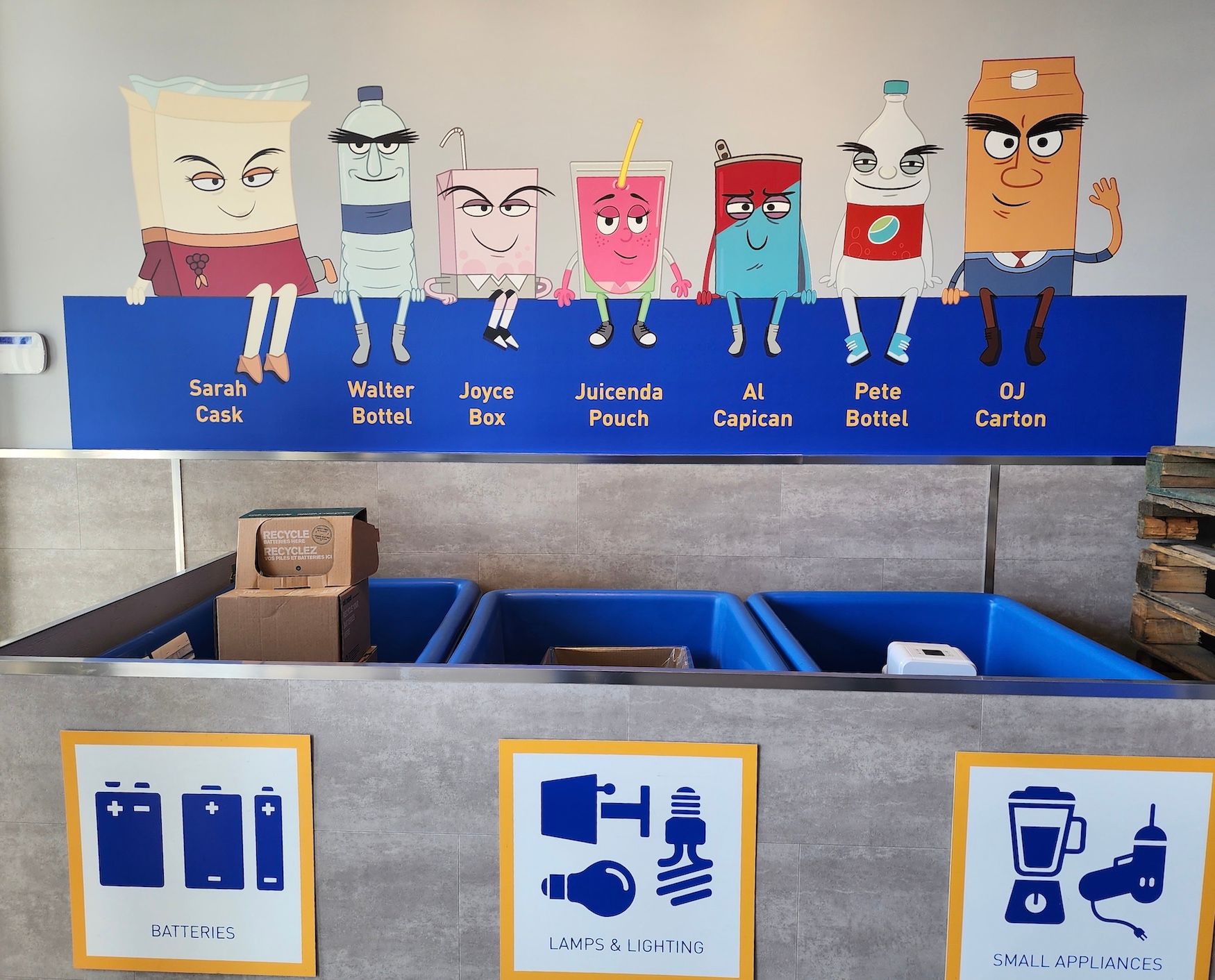
First stop, Encorp Pacific (Return-it) the federally incorporated, not-for-profit, product stewardship corporation with beverage container management as their core business. Their mandate is to develop, manage and improve systems to recover used packaging and end-of-life products from consumers and ensure that they are properly recycled and not landfilled or incinerated. This model is commonly referred to as Extended Producer Responsibility (EPR) or Industry Product Stewardship (IPS). Return-it depots accept over 20 types of containers, ranging from your standard water bottle, to juice pouches, gable-top cartons, boxed wine, and just about everything in between. In 2022, Encorp Pacific recovered 76.6% of all beverage containers put on the market in British Columbia. 99.2% of B.C.’s population have convenient access to one of Encorp’s more than 100 depots.
Next stop, the Binners' Project, an innovative NGO fostering social and economic inclusion within the circular economy by empowering binners (individuals who collect cans and bottles for income). Their programs focused on creating a community from the bottom up, ensuring that everyone involved benefits from the circular economy.
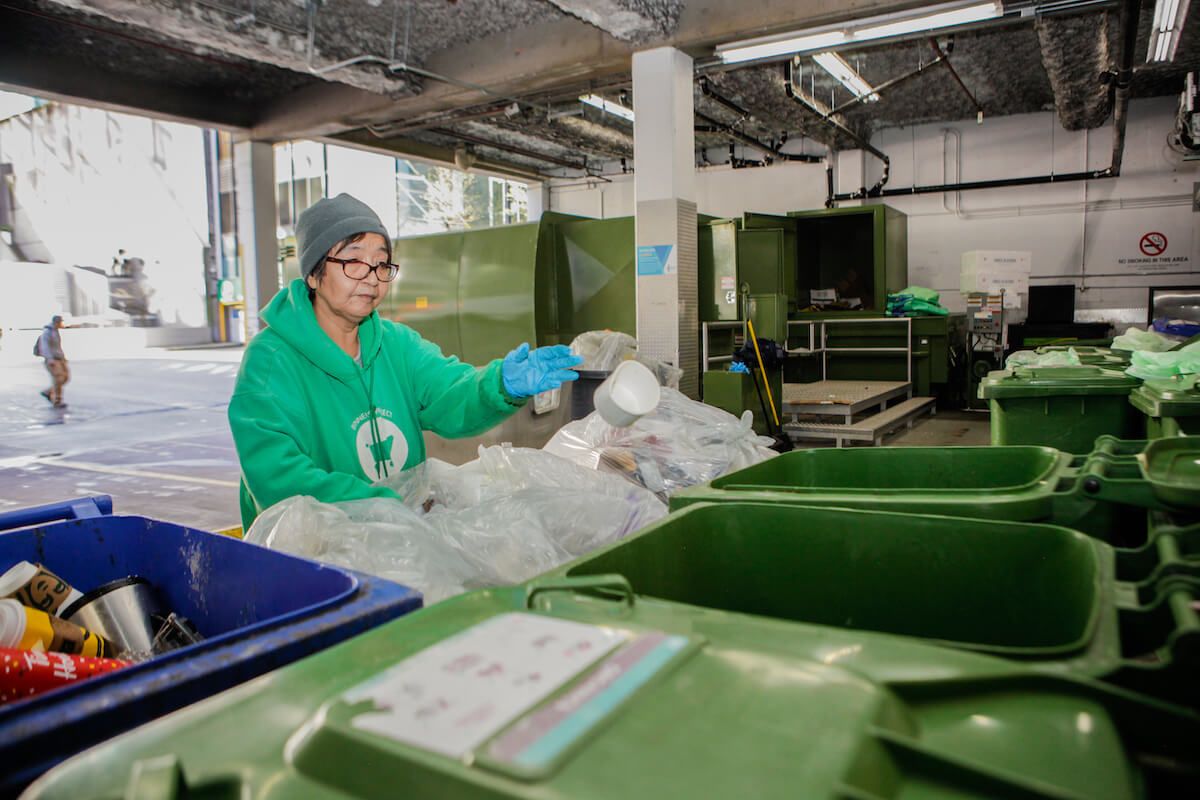
They have been busy prototyping and testing a suite of radical innovations to improve binners’ working conditions and relationships to the communities that they serve. The project also operates a social enterprise program which provides income opportunities for binners to utilize their expertise in supporting waste diversion at businesses across Vancouver.
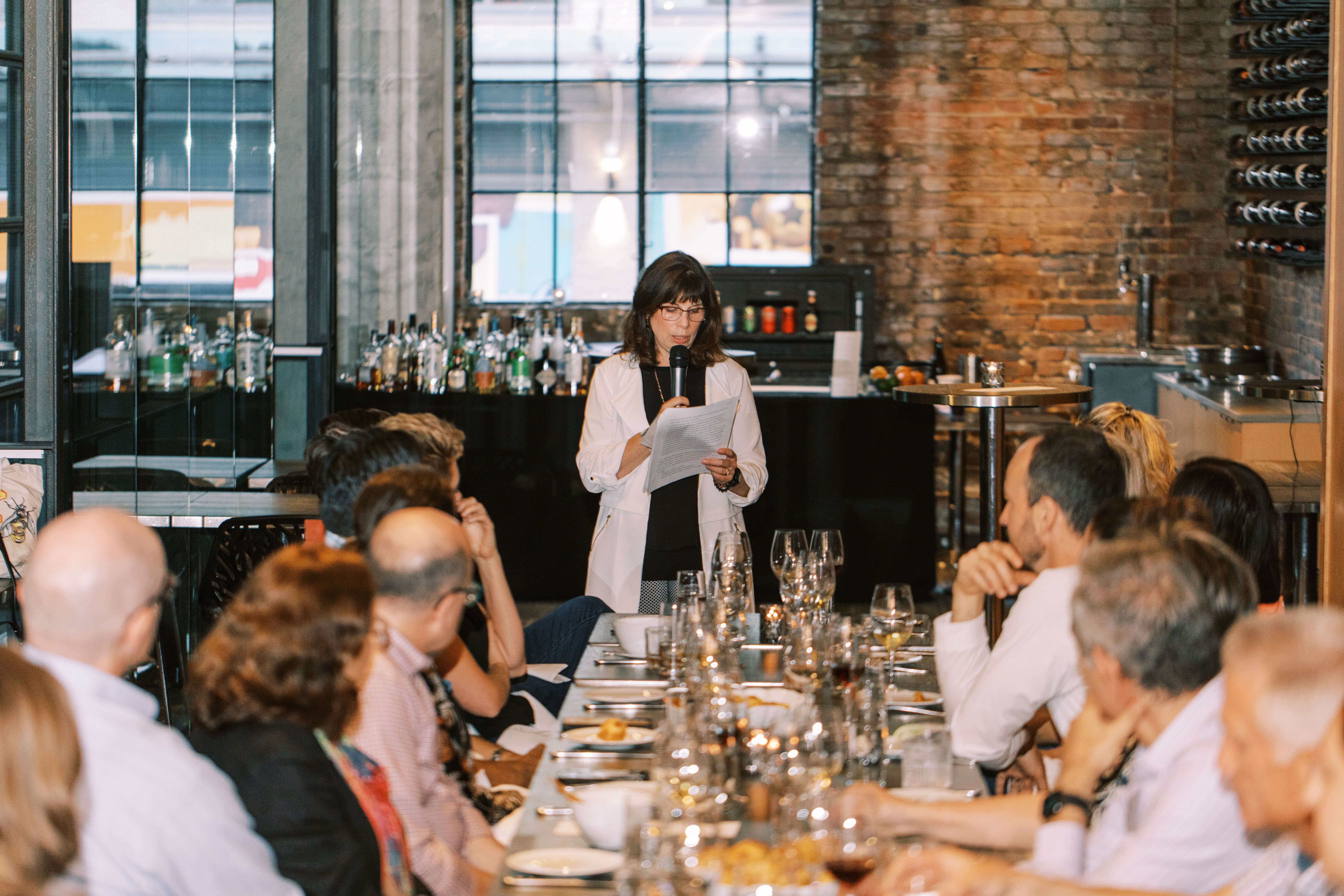
Day one of the tour closed with a keynote address over a farm-to-table dining experience with the British Columbia Ministry of Environment and Climate Change Strategy. The Assistant Deputy Minister for the Environmental Protection Division, Laurel Nash, met the group to provide an overview of the overarching legal framework for extended producer responsibility (EPR) in British Columbia. They shed light on the 14 product categories regulated under the Recycling Regulation (with plans for more to be added, outlined in EPR’s Five-Year Action Plan) and the 21 approved EPR plans, highlighting the collaborative efforts involved in waste management and recycling.
Day two started with Recycle BC, a not-for-profit organization responsible for residential packaging and paper product recycling throughout British Columbia, servicing over two million households or over 99% of B.C. through curbside, multi-family and/or depot services. Recycle BC ensures packaging and paper products are collected from households and recycling depots, sorted and responsibly managed and recycled. Recycle BC provides recycling services either directly to communities or by working in partnership with local governments, First Nations, private companies, and other not-for-profit organizations. 194 communities participate in the curbside recycling collection program and more are serviced by recycling depots. In 2022 over 200,000 tonnes of material was collected from households and depots. The program is funded by businesses, like retailers, manufacturers and restaurants that supply packaging and paper products to BC residents, shifting costs away from homeowners. Recycle BC was originally launched in 2014 as Multi-Material BC (MMBC).
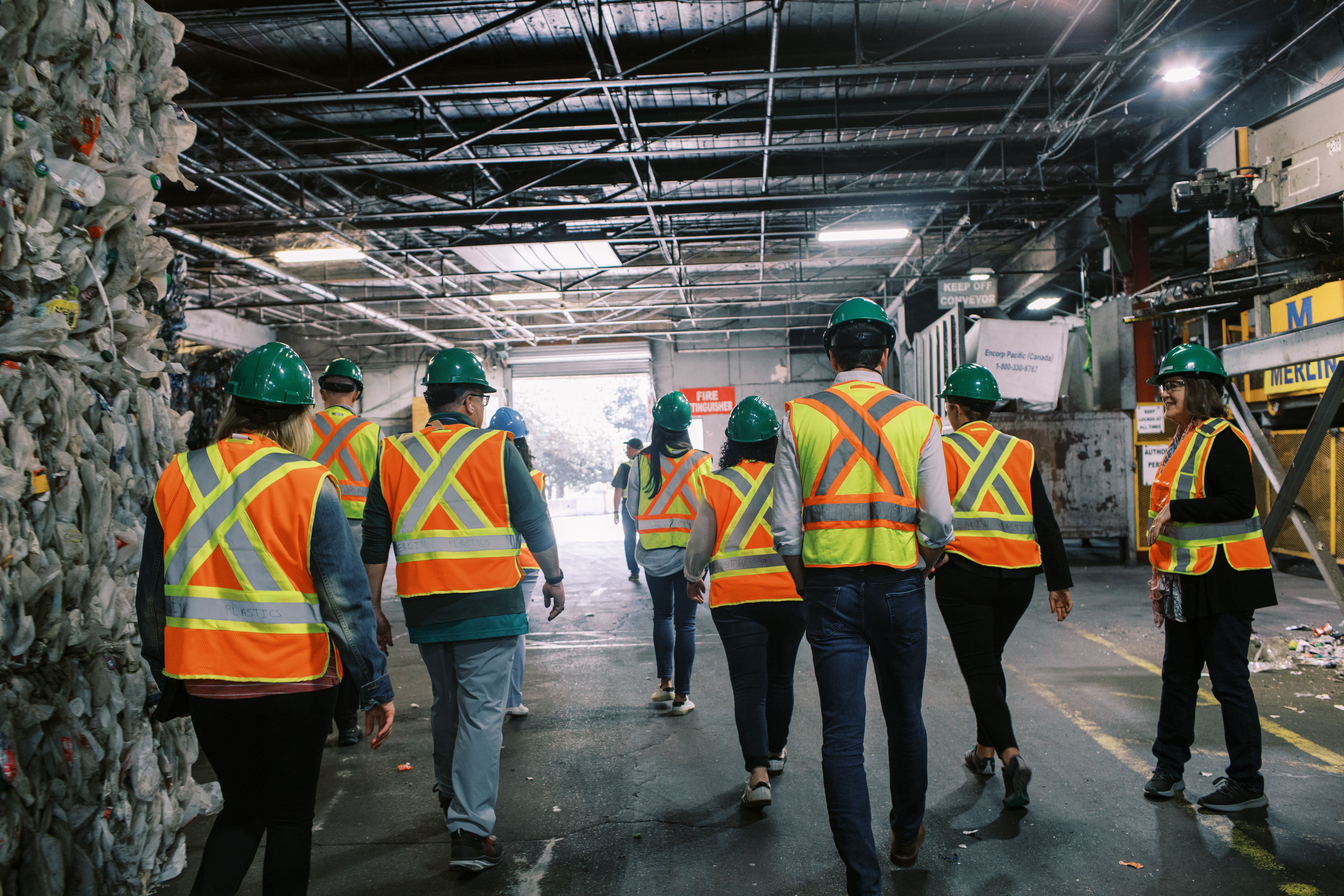
Next stop, Merlin Plastics, a leading recycler and processor of post-consumer and post-industrial plastic container packaging, who showcased their state-of-the-art container sortation plant and an adjoining processing (i.e. recycling) plant. The state-of-the-art container sortation plant, one of the largest on the West Coast, effectively sorts all manner of materials collected from curbside blue bins in British Columbia, from drink straws, yogurt tubs and take-out-food containers and just about any other packaging you can imagine.
The processing plant recycles various post-consumer plastic packaging into food-grade recycled flake and pellet, highlighting the importance of plastic recycling and upcycling.
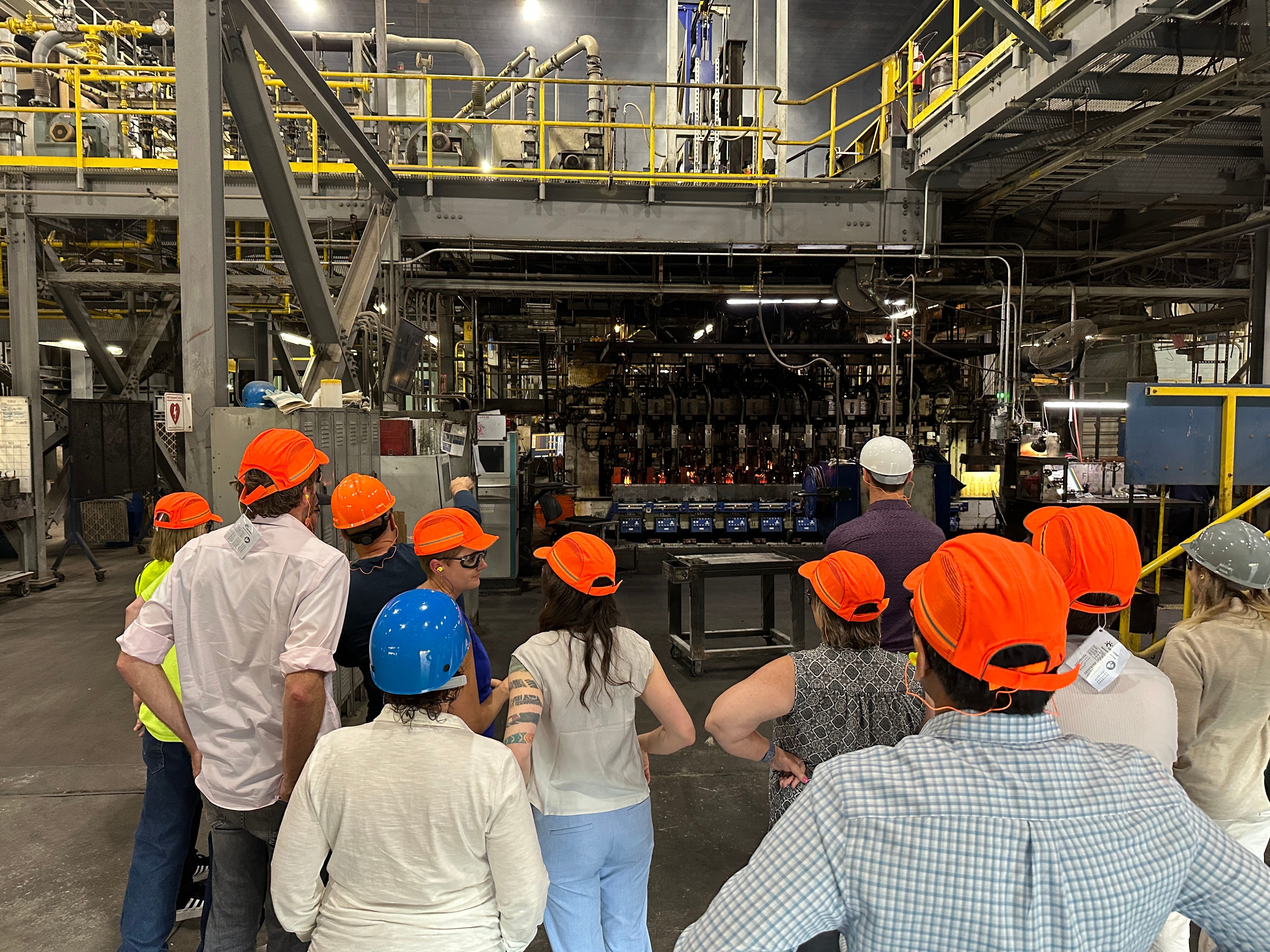
At this point in the tour participants buckled up for a five-hour bus drive over the border, down to Portland, Oregon for the second leg of the trip, taking in the awesome Cascades along the way. On the outskirts of Portland, the tour stopped to visit the O-I Kalama Glass Container Facility, which primarily manufactures wine bottles but also produces larger format beer bottles using recycled cullet.
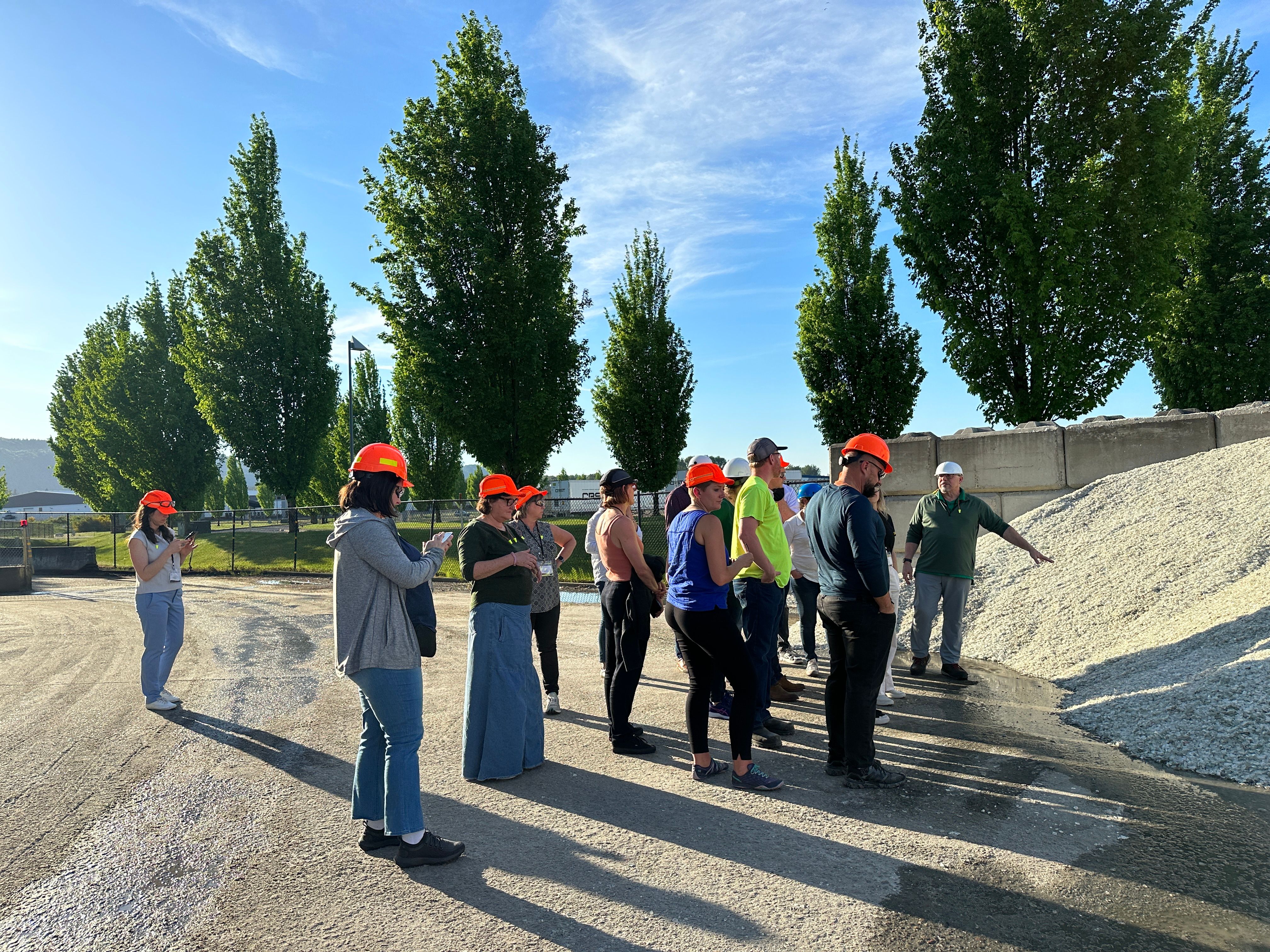
The plant sources their recycled materials from both the OBRC bottle bill processing supply chain (i.e. material reclaimed through Oregon’s deposit-return system) and the Strategic Materials plant in Seattle (i.e. material reclaimed through single-stream curb-side programs). This integration of recycled materials emphasizes the O-I’s commitment to sustainability and the circular economy.
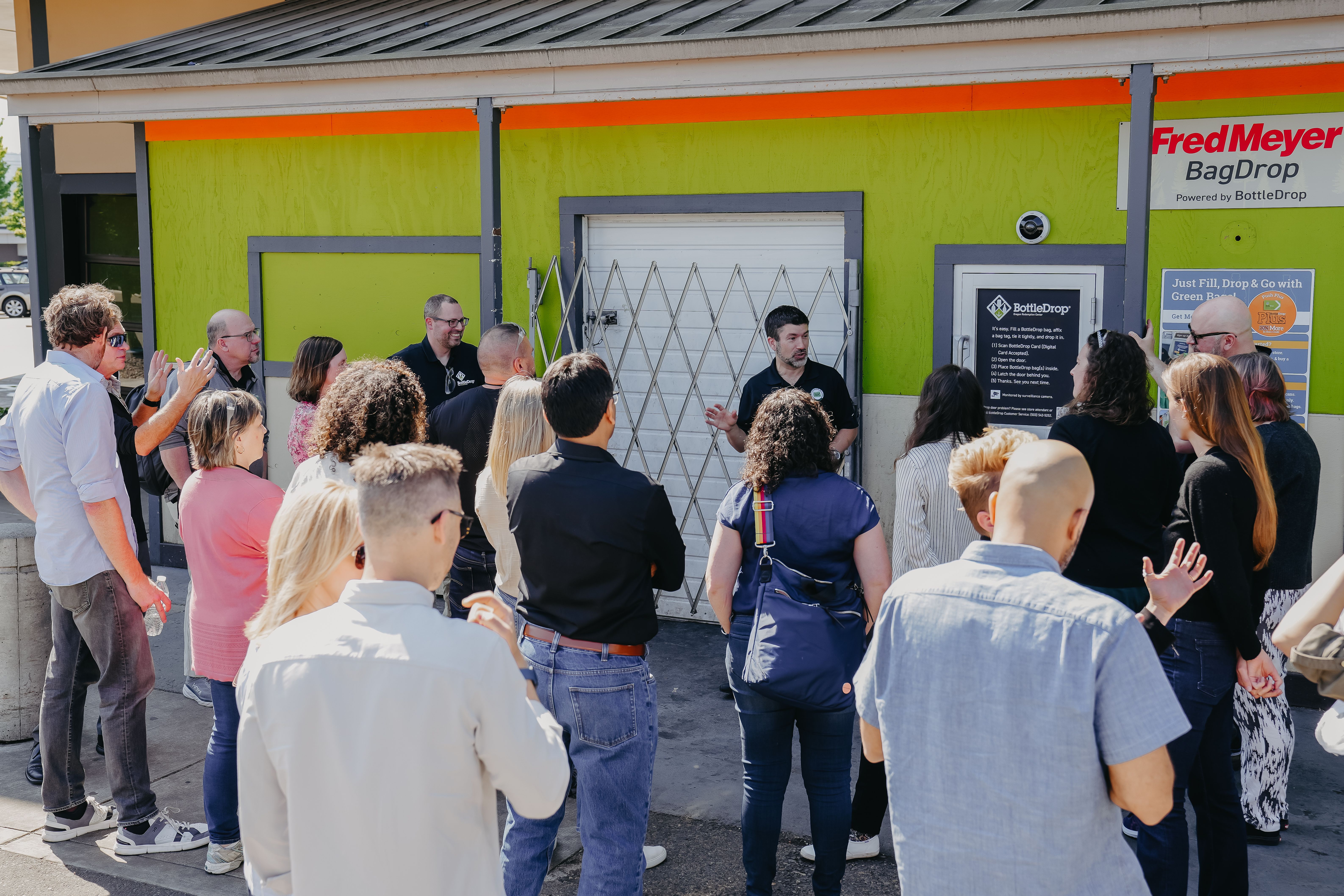
Day three of the tour began with Oregon Beverage Recycling Cooperative (OBRC) serving as the industry steward of Oregon's beverage container redemption program and playing a vital role in keeping Oregon beautiful. In 2022, OBRC redeemed 88.5% of all eligible containers put on Oregon’s market through a system of over 100 BottleDrop Redemption Centers and bag drop locations, processing 164.8 million pounds of material and saving 51,337 metric tons of CO2 equivalent emissions, comparable to taking 10,900 passenger cars off the road.
After learning about OBRC’s impressive system and visiting several of its redemption centers, the tour continued with a visit to The People's Depot, a redemption operated by and for canners (people who informally collect cans and bottles for income), which is a program of Ground Score Association, with support from OBRC and the City of Portland.
Ground Score is a waste picker association that creates low-barrier but formal waste management jobs for dumpster divers and other waste pickers, especially those facing work and housing insecurity. By fostering community resilience and economic inclusion, The People’s Depot provides a welcoming place for canners and works to help society understand canning as important both economically and environmentally.
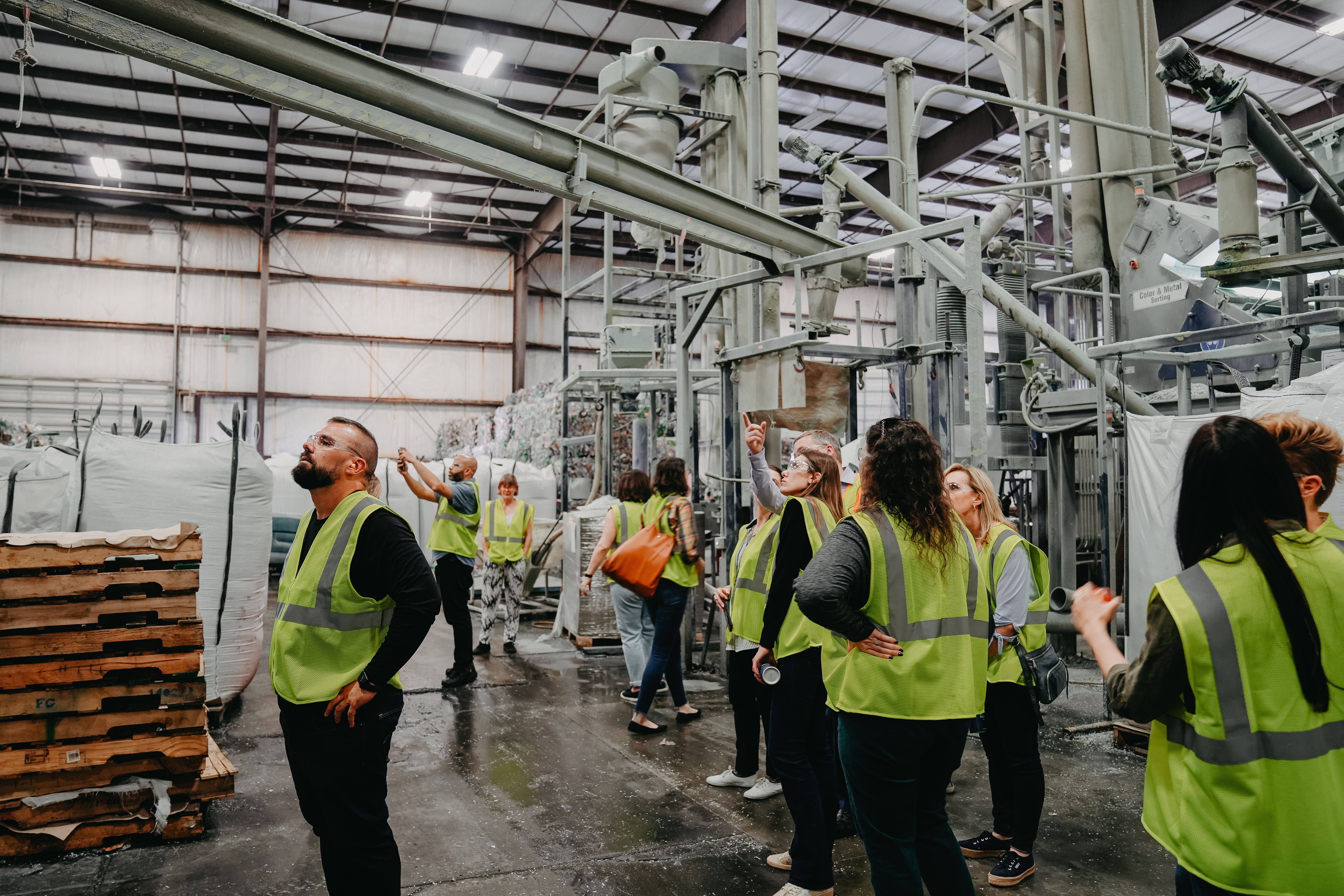
Next stop, ORPET, a state-of-the-art recycling facility, specializes in transforming post-consumer PET bottles into clean PET flake or RPET (Recycled PET). With efficient sorting, granulation, and washing processes, ORPET produces high-quality recycled PET for various end-users. This facility, a joint venture between Merlin Plastics Supply Inc. and the Oregon Beverage Recycling Cooperative, showcases the importance of collaboration in sustainable recycling initiatives.
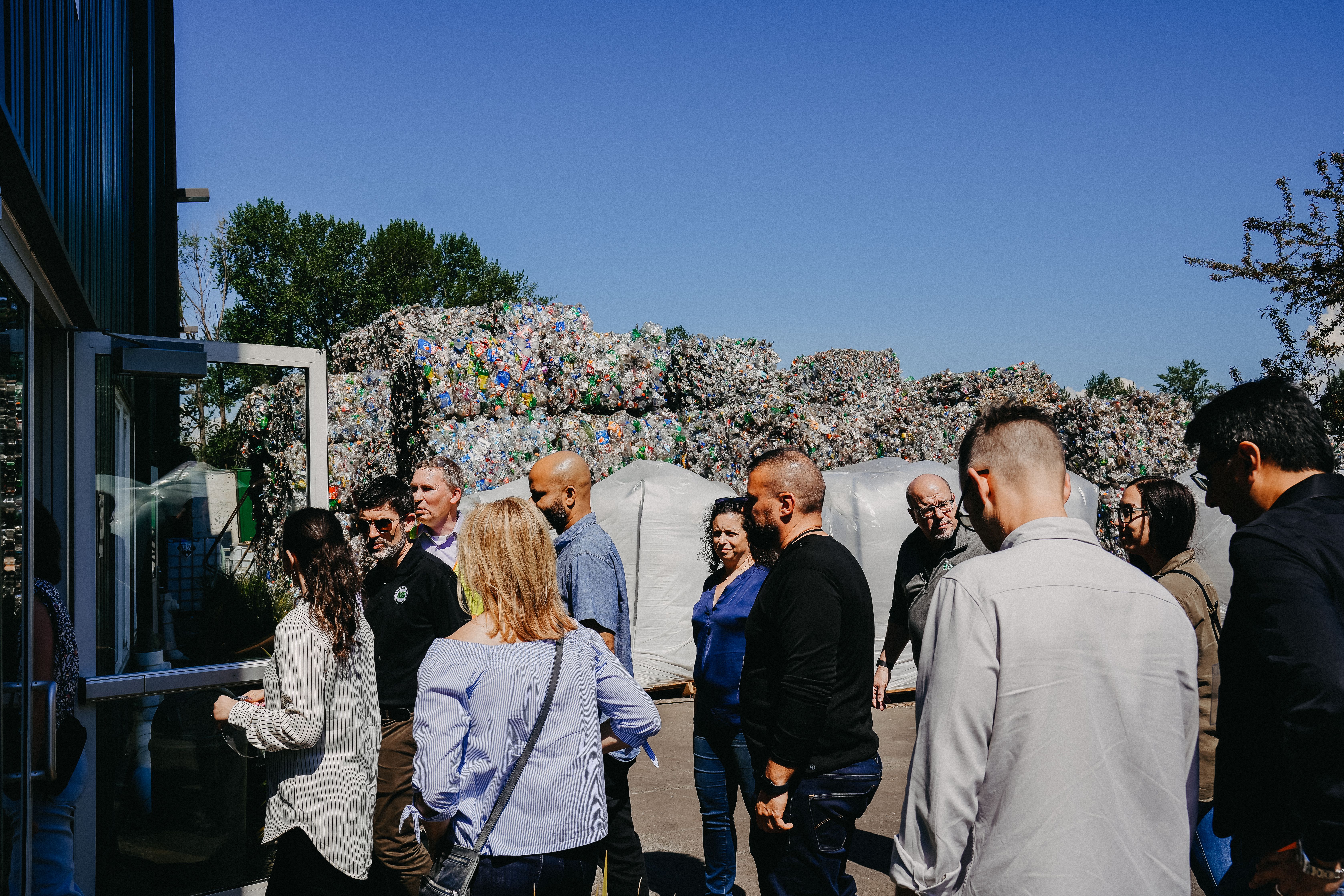
By visiting key organizations in British Columbia and Oregon, the participants gained firsthand knowledge of cutting-edge recycling technologies, sustainable practices, and collaborative initiatives. This immersive experience fostered collaboration, policy development, and a shared vision of achieving a circular economy and ending plastic pollution. Through continued efforts and multi-stakeholder engagement, the Pacific Northwest aims to set an example for the world in sustainable waste management and environmental conservation.
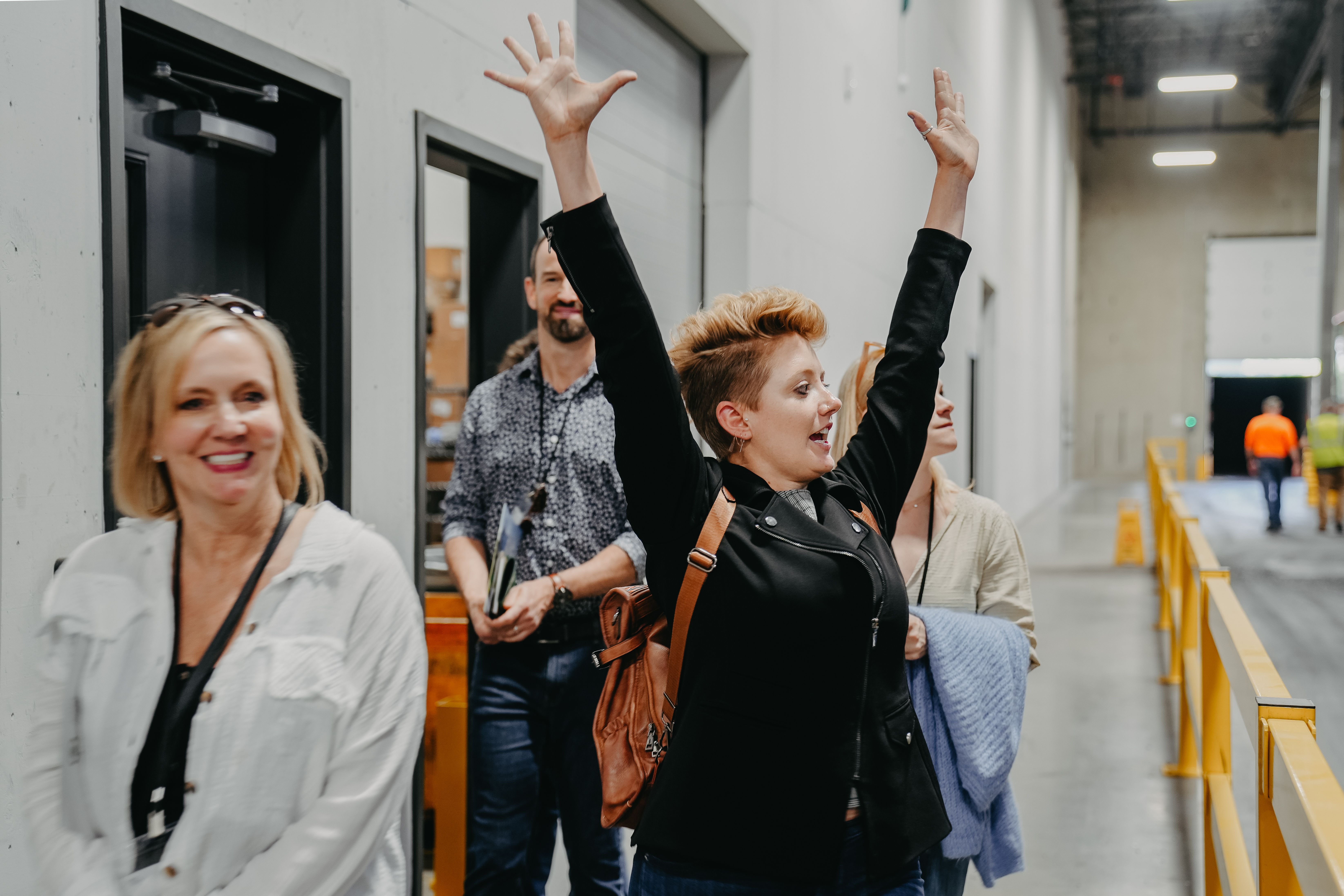

Ocean Plastics Leadership Network (OPLN) is an activist-to-industry impact network founded in 2019. OPLN is bringing together voices across industry, activism, and government to convene and drive engagement on policy and intervention concerning the global plastic pollution crisis.Through neutral and inclusive convenings, expeditions, development tracks, treaty dialogues, stakeholder education, and communications campaigns, the OPLN bridges divides, measures sentiment, and accelerates collaboration.
Atlantic Packaging is the largest privately held industrial packaging company in North America and a leader in sustainable packaging solutions. Atlantic specializes in end-of-line packaging systems and materials as well as converted paperboard solutions. Atlantic’s focus on innovation and technology has made it a market leader for customers requiring sustainable packaging options, packaging equipment, high-performance materials, warehousing, and distribution. A New Earth Project is Atlantic’s hallmark initiative to rid our oceans, lakes, and rivers of plastic pollution.


Green Dot North America Inc. is a one-stop shop for accelerating plastic recycling and creating value from plastic waste. We connect the dots between every step in the closed loop system: extended producer responsibility (EPR) management and services, collection and sorting systems, recycling facilities and connecting brands with quality recycled content to meet their goals. Our approach is founded on more than 30 years of experience, a passion for measurable change, and problem-solving to meet unique community needs. We connect brand partners with opportunities to meet commitments, serve communities and drive change at scale.